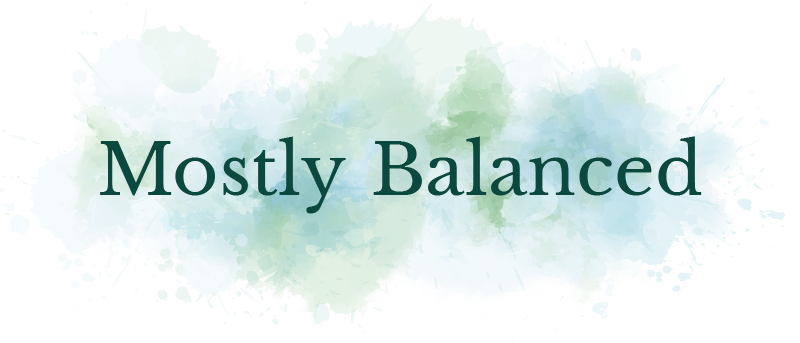It’s the second week fully back and work, and I’m feeling like I’m getting in to the swing of things. I’m loving the opportunity to reconnect with my clients, and I feel like I’ve been able to bring some new ideas to my daily flow after having a bit of time away. It felt like there were some wins this week, too: my sister came over for dinner, and that night, Will started getting himself down to sleep at the start of the night without a whole nursing, bouncing routine. We’ve also spent the last two days watching the Olympics; this was something I really enjoyed for the summer games in Rio but wasn’t super on my radar for the winter games. So far so good.
Here’s what I’m eating and reading this week:
WEEKLY MENU PLAN
All the options below are dairy-free and soy-free recipes now that we’re managing a dairy- and soy-protein intolerance in our little one.
Sunday: Pork chops with chile rice & peanuts (from Cook’s Illustrated One-Pan Wonders)
Monday: Leftovers + roasted broccoli
Tuesday: Leftovers (again! The pork chops & rice recipe made so much)
Wednesday: Cilantro pesto pasta with pan-seared chicken and white beans, green beans
Thursday: Leftovers + side salad
Friday: Orecchiette pasta with sausage and broccoli, side salad
Saturday: Cilantro-lime rice and black bean burrito bowls
WHAT I’M READING AND ENJOYING THIS WEEK:
I agree: this is a horrible, horrible idea. People are responding on Twitter with #WakeUpWeightWatchers.
This sounds good and I wish they had a lunch option.
BOOK REVIEW
 Title: The Little Book of Lykke
Title: The Little Book of Lykke
Author: Meik Wiking
Date: 2017
Format: Library book
I did not get involved in the hygge craze, though I totally buy into the idea that comfort and coziness for their own sakes are a good idea. Apparently, everyone baking cinnamon rolls caused a shift in the demand and price of cinnamon around the world.
Picking up this book was an impulse when it was on the quick-reads shelf at the library. I wound up reading the whole thing in the course of a single Saturday, and I’m glad I did. I’m not big on feeling the need to forever search for what increases happiness, but there were a couple of good tidbits in this book that I’m glad I read. It’s also a good sign when a book is entertaining enough to keep me interested all day.
In particular, I liked the ideas about saving over the long term for something fun (for me, it might be a big trip to another country when the kids are old enough to enjoy it, which means if we actually save up, we also get the fun job of picking out where in the world we’d like to go), lighting candles at the dinner table just because, and biking more. I realized I took a break from biking to my office during pregnancy and hadn’t really considered getting back into it. I renewed my bike-share membership and biked home for the first time this week, which was totally worth it.
A few of my favorites parts are excerpted below:
“We are drawn in by the illusion of connection without the demands of intimacy, and while there are positive aspects of social media (for example, keeping in touch when geographically apart), we find that people who reduce their consumption of social media are happier and connect more in the real world.” (pg 71)
“Pay now, consume later. If you buy an experience, make sure that it is well into the future, so you can look forward to it.”
The concept of “richer but not happier”: “The US is a key example when it comes to looking at how we have failed to transform wealth into well-being. While the US has achieved economic progress and an accumulation of wealth over the past half century, this has not resulted in an increase in happiness for the people. One of the reasons for this is inequality. If a country doubles in wealth but 90 percent of that wealth goes to the richest 10 percent, that is not growth. That is greed.”
“Perhaps complaining is not a French thing, or an Estonian thing, or a Portugese thing; perhaps it is a human thing. We all love to complain.” The German word Weltschmerz literally means “world pain;” or sadness caused by the state of the world.”





